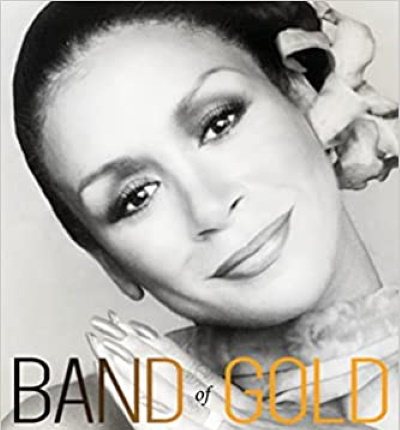Book Review: Freda Payne - Band of Gold: A Memoir
There’s nothing like a good memoir to complement a listener’s appreciation of a longtime favorite singer. The performers who deliver the tunes that help shape the timeline of our personal experiences give us more of an understanding of what makes the music special to us when they open up about their own journeys and the circumstances surrounding their most influential recordings—and, likewise, sometimes overlooked additional professional endeavors. Whether written sequentially and methodically, or presented in a more free-form, idea-based context, a solid autobiography can serve as the springboard to delve deeper into an artist’s catalog and get a more complete picture of his or her output.
Book Review: Freda Payne - Band of Gold: A Memoir
There’s nothing like a good memoir to complement a listener’s appreciation of a longtime favorite singer. The performers who deliver the tunes that help shape the timeline of our personal experiences give us more of an understanding of what makes the music special to us when they open up about their own journeys and the circumstances surrounding their most influential recordings—and, likewise, sometimes overlooked additional professional endeavors. Whether written sequentially and methodically, or presented in a more free-form, idea-based context, a solid autobiography can serve as the springboard to delve deeper into an artist’s catalog and get a more complete picture of his or her output.
Freda Payne, known to the masses for her early 1970s soul hits “Band of Gold” and “Bring the Boys Home,” has six decades of music business experience under her belt. In her book, Band of Gold (co-authored with Mark Bego), she shines the spotlight on her professional pursuits in detail, while also offering a number of insights into her personal background and how they shaped her career choices.
From her childhood in Detroit through her determination to make it on her own in New York, Payne reveals that while she was exposed to a number of musical facets early on via family lineage, it was initially her younger sister, Scherrie (who went on to become a Supreme in the 1970s), who initially showed the most interest in pursuing performance. As luck would have it, though, Big Sis started making a name for herself around town via local competitions and TV. While she doesn’t give any clues as to why her father was out of the picture so early on in her life, she does detail how her mother looked out for her children carefully in matters of both family and business. Thus, several potentially big opportunities were passed up due to questionable contracts during Payne’s teen years.
One of the most compelling aspects of Band of Gold is Payne’s recounting of experiences and relationships with legendary figures of a bygone era: Frank Sinatra, Pearl Bailey, Dinah Washington, and Sarah Vaughan, to name a few. Her relaying of these stories doesn’t gloss over unpleasant situations, but the tone is never bitter or insulting. Even when discussing upsetting scenarios that came into play with Eddie Holland during her time at Invictus Records, she is even-handed and chalks many things up to lessons learned.
Payne is also relatively thorough in her discussion of most of her discography. She gives space to the writers, producers, and musicians involved in bringing to life the range of jazz, R&B, and pop on her ‘60s and ‘70s albums. The only notable omission is a deeper look into the recording sessions for her debut, After the Lights Go Down and Much More, which came after a number of years playing in clubs and revues across the country. Alongside her detailing of each phase of her career, however, she includes her assessments of her romantic liaisons—some of which complicated the practical side of events.
Readers will notice that Payne doesn’t hold back on her opinions of both peers in the industry and others who have entered the fold in more recent years. This gives a clear lens to her paths taken in entertainment, where other entertainers sometimes forego any negative feedback in memoirs and thus don’t display as much personality. This is an effective tool in conveying how her reflections on her own decisions affected the roads she later took. There is one context, however, in which her reminiscing gets somewhat confusing. In reference to her relationship with wealthy businessman Edgar Bronfman, Jr., she makes clear upfront that she was not interested in a long-term relationship due to his erratic behavior, but later laments repeatedly that she didn’t marry him given his potential to elevate her own social standing.
Contrastingly, Payne is notably objective in most other cases, whether it be the decline of her marriage to Gregory Abbott; the opportunity to record an album passed up when her boyfriend at the time would not have been allowed to solely produce it; or, losing an invaluable manager for the sake of staying in an emotionally damaging relationship. Through these candid examples, along with a handful of observations on long-gone show-business traditions, Payne connects the dots between life and art in a way that is continuously engaging and enlightening. Recommended.

